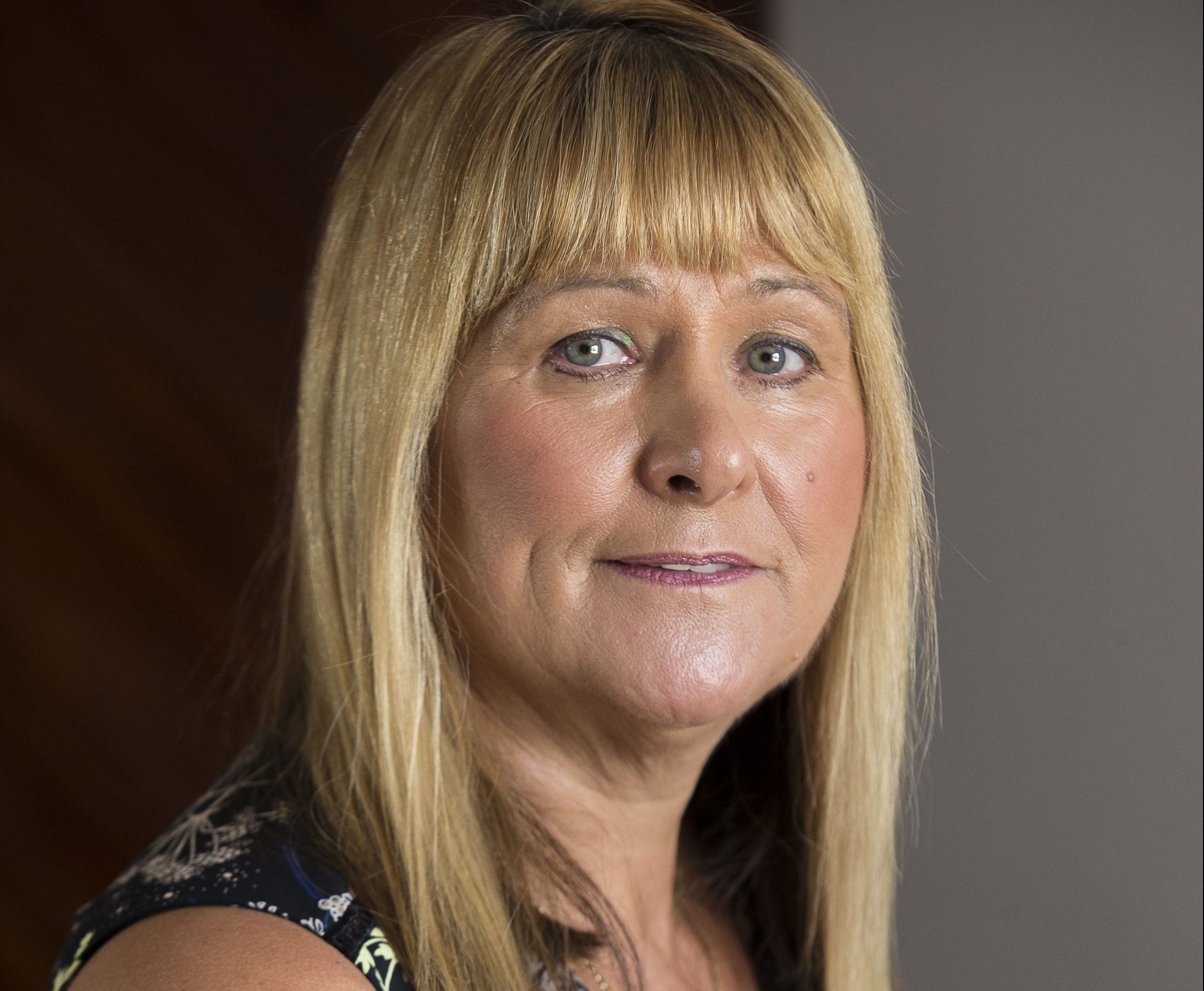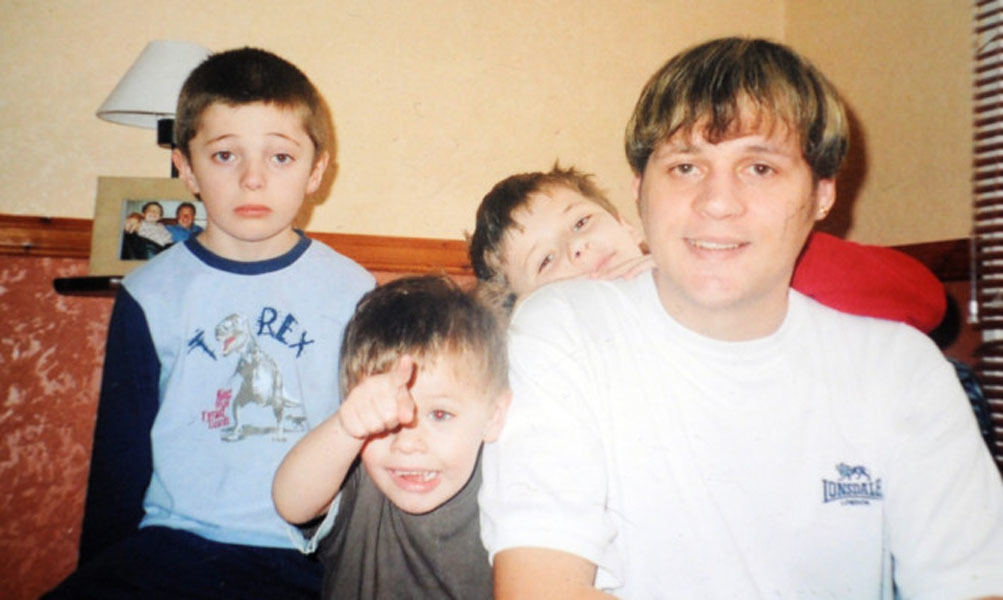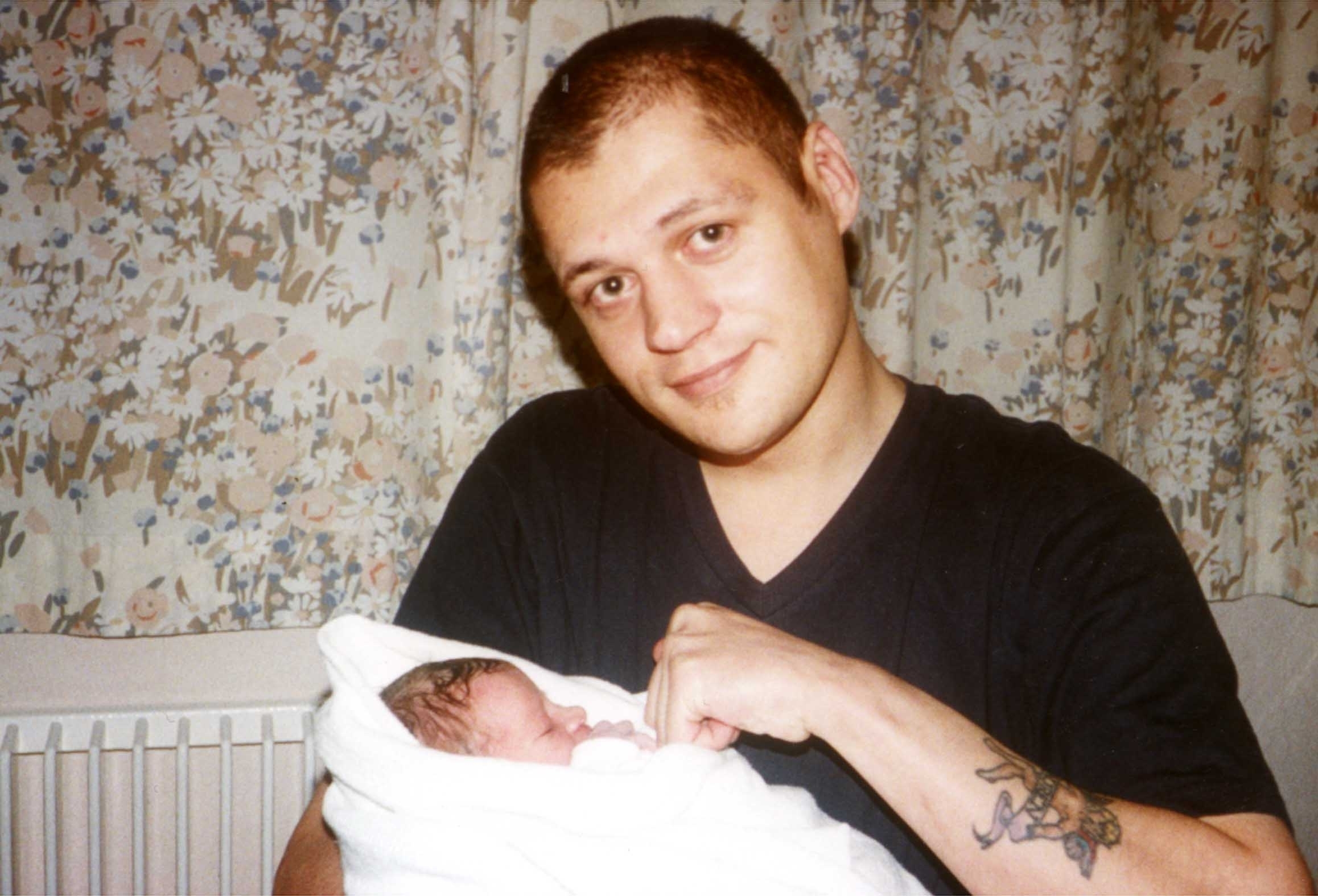
LOSING a child is the most heartbreaking experience that any parent can go through.
But one mum bravely decided to relive the nightmare so she could write a book to help others who are grieving.
In an exclusive interview with The Sunday Post, Jo Jamieson, 60, reveals how the harrowing effort almost killed her.
It’s been 10 years since Jo’s son Dean – a loving dad and husband himself – was brutally tortured and murdered by a gang.
A decade of pain and loss for the whole family.
Child protection officer Jo had to emigrate to Australia to rebuild her own shattered life.
Now, as she prepares to release the book that documents her grief – entitled Last Touch – she reveals: “Writing it was hell on earth because I was going back over details I had not properly taken in before, reliving every moment of what happened. It almost killed me. But through it all, I felt that Dean was guiding my hand.”
The courageous gran today also shares her joy and pride in the success of Dean’s children – two of whom aim to join the police, inspired by the officers who brought their father’s killers to justice.
Dean, 30, had been out in Aberdeen in April 2006 and was making his way home to his wife and wee ones when he was picked up by killers Colin Cowie, Kevin Leslie and Shaun Paton – then aged 22, 24 and 20 respectively.
The dad – who mistakenly thought he had flagged down a taxi – was driven to a city suburb where he was stripped, robbed and repeatedly beaten and stabbed. He tried to run before being finally beaten to the ground and left to die. His killers later admitted in court he was just asking to be taken home.
Cowie and Leslie were convicted of murder in November 2006 and continue to serve 18 and 20-year sentences respectively. Paton was found guilty of the lesser charge of culpable homicide. He was sentenced to 10 years in a young offenders’ institution but was released in 2013.
Speaking during a visit to her home in Aberdeenshire, with her daughter Kerrie and Dean’s widow Carol at her side, Jo admits Last Touch is a “candid warts-and-all” account of the family’s life before his murder and their agonising experiences in its aftermath.
But it also gives practical insights into developing positive relationships with detectives, police liaison officers, the Crown Prosecution Service and the media.
And it offers coping mechanisms for dealing with the unimaginable trauma and grief experienced by victims’ families.
Jo – who identified her son’s body – remembers: “After Dean’s murder I felt I had to be strong for my family. I had to get up in the morning and put on a mask but inside I was crumbling. I felt suicidal.
“I needed space and had to get away. The truth is I was being selfish. I was oblivious to everyone else’s pain. It was as if it was only happening to me. I wouldn’t ask for help. I wouldn’t reach out to anyone.”
She finally sought some kind of solace in a spiritual retreat on the Black Isle, near Inverness.
Jo recalls: “I was alone in this big old house and I cried for the entire weekend. I read spiritual healing books, went for walks in the woods and cried and cried and cried.”
While she was there, she believes she was visited by an angel sent by her son.
She reveals: “I’d tried counselling. It didn’t work for me, but those books did. When I went to Australia I had time to reflect. I knew the rage was destroying me. I realised the hatred and venom wasn’t going to make any difference.
“I had to do something positive and I decided that I could use the experience to help others.”
The gran-of-11 laughs: “I got a cut-price voucher to do a writing course, but I didn’t use it. Instead I phoned the guy heading the course, Australian author Andrew Jobling, for advice.
“He encouraged me to write it myself.
“I just winged it. It took three months to complete but the editors hardly changed a word.”
The end result will be published in the spring by Austin Macauley.
Jo says her work from the heart contains a good dose of love – and even laughter.
She addes: “It mentions Dean’s children. He would have been so proud of them.
“Lauren, the oldest from a previous relationship, is 21 and works in management, but she is sitting exams to go into the police force. Liam is 19 and has just completed his education after winning a scholarship to a top independent school in Aberdeen. He also wants to join the police. They are keen to fight crime and help people.
“Keelan is 18 and heading off to university and Tyler is 14, still at school and doing well.
“Carol has done a wonderful job in bringing up those boys alone.”
Jo – who has been asked to write a second book – says: “It’s been the most challenging decade but I’m fine now. I’ll never get over Dean’s death, but I have learned to cope with it.”
She adds: “I’m glad I wrote Last Touch. I hope it will help others, bring them knowledge and comfort and give them permission to be irrational and emotional.”
And the inspiration for its title? Jo’s eyes meet her daughter’s and they crinkle into a warm smile.
She says: “Kerrie and Dean were always messing around. They used to play a game they called ‘last touch’ – seeing who could be the last to touch the other before one of them went out. It seems fitting somehow…”
READ MORE
Attack victim warns men not to walk home alone

Enjoy the convenience of having The Sunday Post delivered as a digital ePaper straight to your smartphone, tablet or computer.
Subscribe for only £5.49 a month and enjoy all the benefits of the printed paper as a digital replica.
Subscribe
